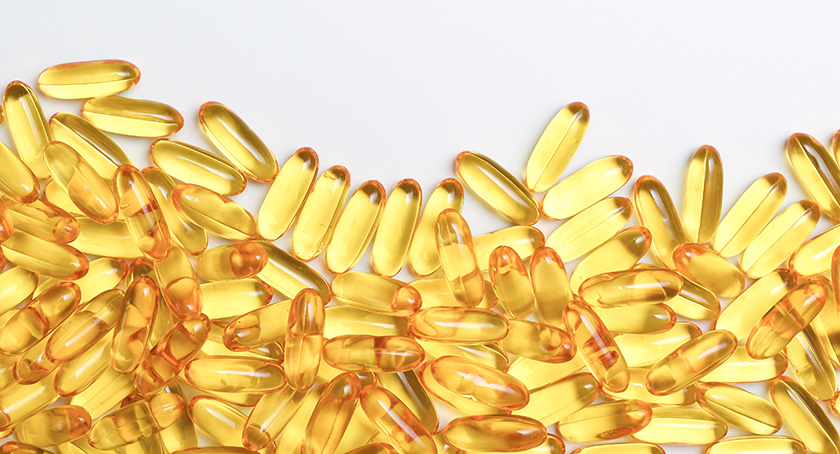Features
Bridging Gaps in Women’s Health with Renewed Attention
Women have unique health needs throughout their lives that nutritional products can help to address.

By: Sean Moloughney

The health needs of women have been under-served in the nutritional products market, according to experts who noted that clinical research has historically focused on male subjects.
Women experience unique health issues and concerns over the course of their lifetime, said Jacqueline Rizo, digital engagement and communications specialist at Stratum Nutrition, “from pregnancy and menopause to gynecological conditions, such as uterine fibroids and pelvic floor disorders. A number of health issues affect only women and others are more common in women.”
Additionally, while men and women may have the same condition, the effects and outcomes are often distinct. For example, women are more likely to die following a heart attack than men, according to the U.S. Agency for Healthcare Research and Quality. Women are more likely to show signs of depression and anxiety than men, according to the American Psychological Association. Osteoarthritis affects more women than men, per the CDC. And women are more likely to have urinary tract problems due to the way the female urinary tract is structured.
“Consumers, both men and women, are increasingly turning to nutritional supplements as a means of complementing a healthy lifestyle of diet and exercise to optimize health,” said Rizo. “Supplements can offer support as an increasing number of older, female consumers look to stay healthy and active, and to delay the onset of age-related degeneration and illness.”
Most diets are lacking in one nutrient or another, she added. “Supplements help bridge the gap and can be used for preventative measures while providing extra boosts of vitamins and minerals.”
An Evolution of Needs
Importantly, as women age, their health needs evolve and change too, noted Carolina Burki, director of product development at Horphag Research. “Most significantly, perimenopause and menopause account for approximately one-third of a women’s lifetime and bring disruptive symptoms that affect everyday life. In fact, by 2025, about 12% of the world population will be experiencing menopause—about 1 billion women. These life stages may bring about the deterioration of endothelial function, putting women at elevated risk for cardiovascular health issues, lowered joint mobility and physiologic changes that manifest in dryer and less elastic skin. Throughout their lifetime, more women are continuously concerned with skin health and urinary tract infections.”
The women’s health category has grown consistently over the last decade as women are looking for safe, natural products to include in their self-care routines, Burki added. “Pycnogenol (French maritime pine bark extract) is one of the leading ingredients for women’s health supported by a vast catalog of research demonstrating benefits for healthy aging, cognitive function, skin health, venous health, reduction of menstrual discomfort, urinary tract infections, and management of endometriosis, perimenopause, and menopause.”
Additionally, Pycnogenol has been shown to improve menopausal symptoms, “including hot flushes and nightly sweating, menstrual problems, impaired sense of attractiveness, memory and concentration problems, anxiety, nervousness, sleep problems, depression, and others,” Burki said. “It is also important to note that Pycnogenol has been proven to have no impact on hormonal levels.”
Reoccurring UTIs are a growing concern for women as well, Burki said. “UTIs are the second most common type of infection and cause more than 8 million visits to the doctor each year. A study conducted just last year found Pycnogenol may be effective at reducing UTI infection occurrence and decreasing painful symptoms, without side effects (Evidence-Based Complementary and Alternative Medicine, 2021).”
As strain-specific probiotic research continues, unique women’s health solutions are gaining momentum. The benefits of probiotics in support of women’s health are increasingly recognized, mainly due to their ability to maintain and restore digestive and vaginal microflora balance. For example, Lallemand Health Solutions offers dedicated probiotics for women’s health including L. plantarum ROSELLA, which has gained approval from Health Canada for the strain’s ability “to support a healthy vaginal microbiome.”
Bone health and osteoporosis have been a top health concern for women, noted Rizo. “As women reach menopause, the chance of developing osteoporosis increases and estrogen, a hormone in women that protects bones, decreases, which causes bone loss. ITC Insights found supplement users 46 and older reported joint/other pain as their top health concern.”
Osteoarthritis results from the degeneration of articular cartilage and underlying bone, leading to pain, stiffness, and swelling. It is one of the most common causes of disability among older people. “Decreased estrogen levels in postmenopausal women not only increase the risk for osteoporosis, but also the risk for osteoarthritis as well. Consequently, supplementation to help decrease risk for both these disorders is important,” said Rizo. “While supplementation with calcium, vitamin D, and other nutraceuticals has benefit for bone health, supplementation with NEM (Stratum’s branded eggshell membrane ingredient) has been shown to promote joint health in women. In fact, the combination of joint-supporting NEM and bone support nutraceuticals, such as ESC brand eggshell calcium, present a new marketing opportunity for a valuable new product.”
Research on NEM has incorporated CTX-II to substantiate the benefits of NEM in protecting cartilage from degradation associated with exercise, she added. “Evaluations of pain and stiffness have traditionally been the main criteria used to determine the effectiveness of supplements designed to improve joint health. The use of an objective biomarker associated with cartilage breakdown further supports NEM’s already substantiated benefits to joint health. Research that demonstrates protection and preservation of a part of the body that is often susceptible to long-term repercussions of exercise stress is a major departure from the short-term benefits that are often seen.”
Missed Opportunities: ‘Change is Coming’
The biggest missed opportunity to support women’s health begins with research, according to Rizo. “There is a definite gap across the board on the lack of women’s health being researched. For quite some time, medical research has treated men and women as interchangeable subjects. Funding has favored men’s health and the male body for studies.”
In many cases, women and men don’t experience the same health conditions, or symptoms manifest differently. “Research ought to be focused on both genders, separately, rather than pressing men’s recommendations onto women due to that lack of research,” said Rizo.
Importantly, she added, “Women do not want the same supplements as men in a pink bottle. They want supplements formulated towards them specifically.”
Tim Hammond, vice president of sales and marketing at Bergstrom Nutrition, said the company also sees nutritional support for women as an under-developed market, “so we are placing even more emphasis on female-focused OptiMSM research. Female consumers continue to seek products that can address whole-body well-being. We also know that women experience higher muscle, bone, and joint decline rates as they age than men do, and therefore may require extra supplementation of the nutrients needed to preserve connective tissue.”
Recognizing how nutritional needs can differ significantly between men and women is an evolution within the industry that presents, Hammond said. “Nutrition research historically focused on males, overlooking the dietary needs of females … From overlooked dietary deficits to beauty from the inside out, we believe there are a wealth of opportunities that we can leverage to serve female consumers.”
As the women’s health category has grown, so have the expectations of what brands can deliver, said Burki. “It is important for companies to conduct research on how products can holistically benefit women’s health. At Horphag Research, we analyze what health concerns women are concerned about and implement these factors into our research.”
Women want safe, evidence-based, and efficacious ingredients, Burki added. “Brands should consider these product aspects when marketing to women. Pycnogenol has become one of the leading natural women’s health ingredients due to its vast catalog of research spanning 40 years supporting its benefits for women’s health concerns. Choosing a proprietary, patented, active ingredient like Pycnogenol allows brands to utilize the research and development needed to anchor a combination formula or a standalone supplement and achieve noticeable results.”
Women make up more than half of the U.S. population and nearly half of the workforce. “They are the ones most likely to be caregivers and decision makers when it comes to care,” said Rizo. “More women are supplement users over men and they are the top purchasers of dietary supplements. Formulating and marketing products for women is a huge opportunity for brands to tap into. Women have been detrimentally underrepresented in health research and marketing, but there is hope on the horizon—change is coming.”




















